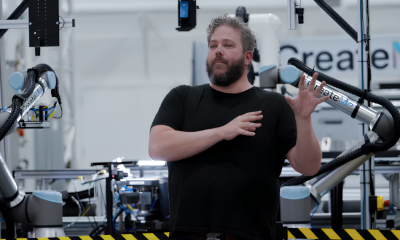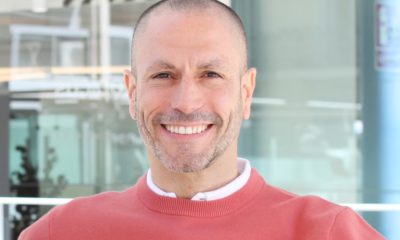Interviews
Kushal Chakrabarti, VP of Research and Data Science at Opendoor – Interview Series

Kushal Chakrabarti is the Vice President of Research and Data Science at Opendoor, a leading digital platform for residential real estate.
What initially attracted you to machine learning and data science?
I’ve always seen the world in numbers, but it wasn’t until college that I realized data science was my true calling. And I can pretty much pinpoint the moment: “Introduction to Programming with MATLAB.” Seeing that 3D contour plot on the MATLAB splash screen was “Wait a minute…” It was like love at first sight for me.
To me, data science is the closest thing I’ll ever get to seeing the “mind of God.” Regardless of whether you’re religious or not, there’s clearly an underlying mechanism to how the world works. We don’t have the privilege of seeing it directly, but we do get to observe its artifacts — data. And the science and art of reconstructing that underlying mechanism is data science.
Could you discuss some of the evolution that you have personally witnessed in the data science field over the years?
There’ve been two broad trends I’ve noticed in my nearly two decades in the field.
First is the creation of sub-disciplines. When I came up through the ranks, there wasn’t a distinction of data engineering vs. decision science vs. machine learning. If you wanted to do the fancy math, you had to do the rest as well — there simply wasn’t any other option. Today, given how far the field has come, people are now starting to specialize in sub-disciplines. That’s inevitable in any maturing field — there were only a few different kinds of doctors a hundred years ago, but dozens exist today.
Second is the broad democratization of the field. Today, a great array of tools exist that make the field exponentially more accessible to newcomers. Although I certainly appreciate not having to write C++ code for the forward-backward algorithm, it’s actually a double-edged sword: many practitioners today treat those tools as black boxes and don’t understand why certain things were designed to work in certain ways, and hence have difficulty in choosing the right tool for the right job.
What is your current vision for the future of data science at Opendoor?
What gets me up every morning is building technology to help everyday Americans in the real world. Buying or selling a home is one of the biggest milestones in a person’s lifetime, and the work we do helps people across the U.S. achieve homeownership in a simpler, more certain and faster way.
At Opendoor, we make hundreds of data-driven decisions every day. Our teams use everything from causal inference to structural econometric models to deep learning that drive our state-of-the-art pricing models.
But when you peek under the hood, there are a lot of heuristics. People use heuristics because they work, but heuristics work in the middle and fail at the edges. When you think deeply about the underlying mechanisms of how people behave, you can start abstracting out principled frameworks that strictly generalize those heuristics. It’s my vision and hope that we build out those principled frameworks so we can unlock easier, better and faster homeownership for millions more Americans.
On your LinkedIn profile you invite data scientists to work with you to solve a trillion-dollar data science problem that matters to a hundred million everyday Americans. What do you look for in potential applicants?
We fundamentally look for people with two distinguishing traits: a superpower to quantitatively and systematically explain the world, and an ability to pragmatically work backwards from the customer.
I deeply believe in managing superpowers. In my experience, the best data scientists are T-shaped: they know a little about a lot, and a lot about little. And in my case, a lot about very little! We don’t expect people to know everything. We do, however, expect people to be exceptional at something. And if you set things up in the right ways, you can assemble a team of people with complementary superpowers that — together — can make magic happen.
That’s not a cliche. As the Isaac Asimov quote goes: “Any sufficiently advanced technology is indistinguishable from magic.” Real estate is a trillion-dollar industry that has gone unchanged for decades. We’ve only begun to scratch the surface, but we’ve already set the standard for years to come. As we bring on superpowered teams and drive forward our vision, we will make magic.
Check out our open roles here.
Is there anything else that you would like to share about Opendoor?
Given my rather odd background — computational biology research, Amazon personalization, two-time startup founder and advisor to a dozen-plus other startups — I’ve probably seen the inside of 15-20 data science organizations. I can unequivocally say that Opendoor has the most fascinating technical challenges of any organization I’ve seen.
Coupled with that is the sheer scale and impact of what we do. There simply aren’t many trillion-dollar problems in our world. There certainly aren’t many that are operating in such an archaic status quo. In just a few years, we’ve turned that model on its head and shown that there’s a faster, simpler, and more certain way to do things that combines the best of sophisticated data science and customer-centric operations. But, we’ve just begun. Figuring out how we can use new datasets and world-class data science to get to the next level is an exhilarating technical challenge that’ll help millions of Americans across the United States.












